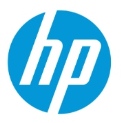
LAS VEGAS – Using its Global Partner Conference to unveil a host of new enterprise storage and networking offerings from new blade servers to a cloud storage offering and a solution for the bring your own device (BYOD), Hewlett-Packard Co. (NYSE: HPQ) touted the breadth of its converged infrastructure platform Tuesday as a competitive advantage its competitors are trying (and failing) to emulate.
“We’re a portfolio company. We invest in intellectual property across the technology continuum. That’s what we do,” said Stephen DeWitt, senior vice-president of enterprise marketing for HP (pictured above).
Dell is trying to copy HP’s approach, claimed DeWitt, while others are trying to emulate it with a consortium approach, such as the VCE Alliance between VMware, Cisco and EMC, but DeWitt called it “absurd” to think they could pull together the level of integration HP can.
Looking to address the ever-popular BYOD trend, HP launched new unified wired and wireless solutions designed to deliver a unified network to support corporate BYOD policies. While most networking competitors and legacy networks have separate wired and wireless networks, which means an integration challenge when it comes to enabling BYOD, HP differentiates by offering a unified network said Bethany Mayer, senior vice-president and general manager for networking at HP.
RELATED STORY: HP unifies channel go to market, drops revenue gates and caps
The vendor claims a unified approach can reduce operating costs by 38 per cent and eliminate as many as half the required number of network access devices. The new HP 830 Unified/WLAN Switch can support up to 1000 wireless devices. The announcement also includes other new switches and tools for access control, to enable self-onboarding of devices according to role-based policy, freeing-up IT staff to focus on more strategic priorities.
On the blades front, HP announced:
* The HP BladeSystem c7000 Platinum enclosure: Part of the HP ProLiant portfolio, HP claims it can help organizations save up to 68 per cent in data centre operating costs.
* The SX1018 HP Ethernet switch: Designed to work with the c7000 enclosure, HP claims it provides port-to-port latency of any blade switch, is more than four times faster than previous switches.
* HP ProLiant WS460c Generation 8 (Gen8) Server Blade: Supports virtualized client solutions with high-density 3-D graphics and eight GPUs per blade server. By supporting four times more users per host blade, HP said it lowers costs by up to 60 per cent per user compared to previous generations.
On the storage front, HP announced two new HP StoreVirtual Storage systems, based on HP ProLiant Gen8 technologies, that promise productivity and efficiency gains for businesses deploying virtualization solutions. The new models are the HP StoreVirtual 4530 and 4730. The 4530 is configured with high-capacity 3TB drives, and the 4730 is a 25-drive model that features 900 gigabyte drives.
It also launched HP StoreSystem, a channel-only midrange storage solution that combines HP 3PAR StoreServ Storage and HP StoreOnce Backup systems that are pre-packaged for rapid deployment.
Finally, on the services front, HP launched Proactive Insight experience. Based on HP Proactive Care and HP Insight, it’s a support and management services offering designed to take companies from a reactive break-fix IT approach a more proactive approach that addresses problems before the occur. The vendor promises return on investment in as few as 30 days.
“The intent is to provide our customers with an automated experience focused on preventative services, versus waiting for something to break,” said David Twohy, HP’s vice-president of global channel services. “It’s being driven by cloud computing, big data and BYOD all putting pressure on IY, which still needs to deal with the traditional stack.”
Twohy said partners can either resell HP’s service offering and earn a margin, or gain the certification from HP to implement the services on HP’s behalf and earn additional revenue.
With a range of new networking products now coming to market, HP had made progress in being seen in the market as a networking player said Mike Banic, vice-president of global marketing for networking with HP, although there is still work to be done.
“Awareness is probably one of the top requests I hear from sales people and partners, but we have gotten onto the conversation for growth in market share,” said Banic. “We’ve gone from single digits to 12 per cent in blades, while Cisco is at its lowest market share in switching since 2001.”


